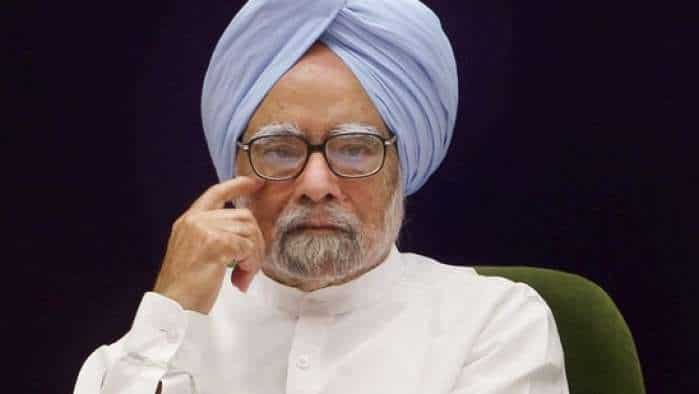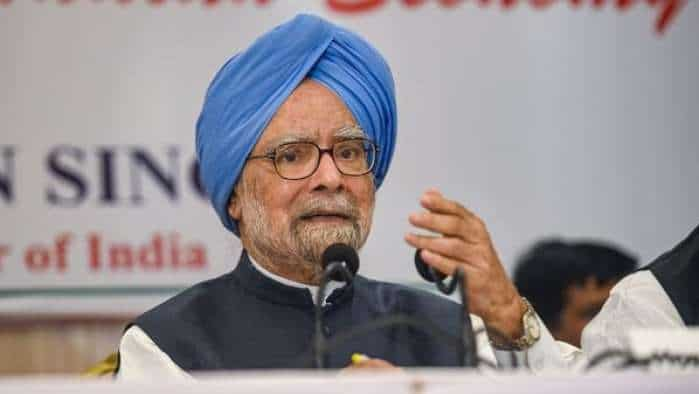Government revises definition of strategic disinvestment under Income Tax Act of 1961
According to the notification, strategic disinvestment will be stated as "any movable property, being equity shares, of a public sector company or a company, received by a person from a public sector company or the Central Government or any State Government under strategic disinvestment."
)
The Finance Ministry, through a notification, has revised the definition of strategic disinvestment under the Income Tax Act 1961, 11UAC, for clause 4.
According to the notification, strategic disinvestment will be stated as "any movable property, being equity shares, of a public sector company or a company, received by a person from a public sector company or the Central Government or any State Government under strategic disinvestment."
The circular further states that for the purposes of this clause, 'strategic disinvestment' shall have the same meaning as assigned to it in clause (iii) of Explanation to clause (d) of sub-section (1) of Section 72A.
The new definition will come into force on April 1, 2023, and shall be applicable for the assessment year 2023–2024 and subsequent assessment years.
In the new definition, the government has made some additions that give more clarity. Earlier, the definition was "any movable property, being equity shares, of the public sector company, received by a person from the Central Government or any State Government under strategic disinvestment."
What is strategic disinvestment?
According to the Department of Investment and Public Asset Management, the "Strategic Disinvestment Policy of 2015–20 rests on key pillars: minority stake stale by Securities and Exchange Board of India (SEBI) approved modes, strategic disinvestment, and transfer of management control. Strategic disinvestment of central public sector enterprises (CPSE) lies at the heart of the disinvestment policy. It would imply the sale of a substantial portion of the government shareholding in a central public sector enterprise of up to 50 per cent, or such higher percentage as the competent authority may determine, along with the transfer of management control."
In simple terms, strategic disinvestment is the sale of more than 50 per cent of government shares in a public enterprise.
Why is strategic disinvestment done?
The government uses the proceeds of disinvestment to finance various social sector and developmental programmes and also to infuse private capital, technology, and best management practices into Central Government Public Sector Enterprises.
Finance Minister Nirmala Sitharaman, while presenting the Union Budget FY 2021–22 in Parliament, announced that the government has approved a policy of strategic disinvestment of public sector enterprises that will provide a clear roadmap for disinvestment in all non-strategic and strategic sectors.
Catch the latest stock market updates here. For more news on sports, politics follow Zee Business
Get Latest Business News, Stock Market Updates and Videos; Check your tax outgo through Income Tax Calculator and save money through our Personal Finance coverage. Check Business Breaking News Live on Zee Business Twitter and Facebook. Subscribe on YouTube.
RECOMMENDED STORIES
10:36 AM IST











 Disinvestment process of RINL is under progress: Steel Ministry
Disinvestment process of RINL is under progress: Steel Ministry No separate mention of disinvestment proceeds in Budget 2023-24
No separate mention of disinvestment proceeds in Budget 2023-24 Government gets multiple EoIs for privatising NMDC Steel: DIPAM Secretary Tuhin Kanta Pandey
Government gets multiple EoIs for privatising NMDC Steel: DIPAM Secretary Tuhin Kanta Pandey Union Budget 2023: What is disinvestment and why it is done ?
Union Budget 2023: What is disinvestment and why it is done ?  Budget 2023: Privatisation of more banks, other PSUs not on cards, say sources
Budget 2023: Privatisation of more banks, other PSUs not on cards, say sources